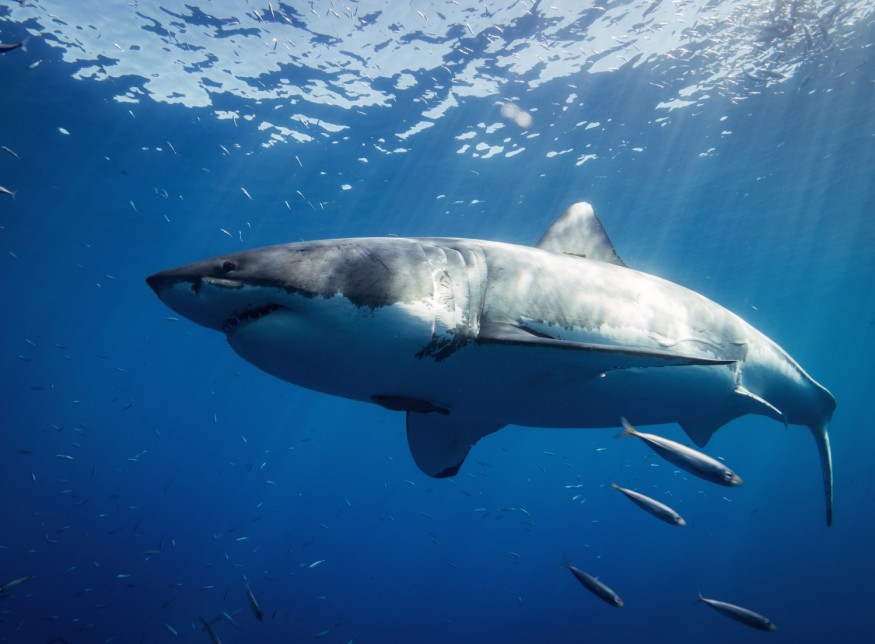A half-devoured great white shark was stranded on a beach in Australia, near the state of Victoria, sparking fear that a 'megapredator' in the deep sea could be responsible for the shark's death. However, experts are suggesting that an orca may be the culprit behind the half-eaten great white shark. According to reports in recent days, the 10-foot shark lost the bottom part of its body but was still fresh when it was discovered.
Orcas (Orcinus orca) are known to be the world's top ocean predators, even surpassing the previous title held by great white sharks (Carcharodon carcharias). Also called killer whales, orcas have a track record of stalking, hunting, and killing white sharks, with the primary aim of eating only their livers before leaving them for to die. Due to this behavioral pattern, the incident surrounding the decapitated shark along the Australian beach remains a mystery.
Half-Devoured Great White Shark

In a post by the Facebook page Portland Bait and Tackle on October 17, photos show the carcass of the half-devoured great white shark washed up on a beach. The Facebook post indicates that the shark ended up on a beach at Bridgewater following a killer whale attack, which has not been verified by authorities until now. However, scientists are linking the incident to an attack orchestrated by orcas.
The dead shark was reportedly discovered by Ben Johnstone, a shop manager at Portland Bait and Tackle, a recreational fishing store located in Portland, Victoria. Johnstone measured the shark to be about 3 meters long or almost 10 feet. The bait manager believed that killer whales were responsible for the attack since a pod was spotted in the area several days prior to the appearance of the half-eaten shark.
Also Read : Great White Sharks Decline In South Africa; Marine Experts Call For Conservation Measures
What are Great White Sharks Afraid Of?
Although the possibility of an unknown megapredator in the ocean could have killed the great white shark in Australia, stronger evidence points more to the orcas, which are the only known natural predators of white sharks. In turn, the predatory sharks have been documented in the past to be afraid of O. orca in places like the waters of South Africa.
In recent years, related incidents have been reported in different parts of the world, with killer whales being blamed for the deaths of multiple great white sharks.
In a 2022 study published in the ESA Journals, scientists re-confirmed that orcas intentionally hunt great white sharks after the marine mammal was caught on video killing one of the world's most ferocious predators.
Despite having their own films like "Jaws" that instilled fear of great white sharks for generations, scientists assert that orcas or killer whales are dominating the marine food chain, especially after the extinction of the ancient shark megalodon (Otodus megalodon).
Further evidence of orca dominance is also based on multiple reports over the past decade in South Africa, wherein a duo of killer whales, named Port and Starboard, were notoriously known for killing 17 sharks in a single day near Gans Baai.
© 2025 NatureWorldNews.com All rights reserved. Do not reproduce without permission.





